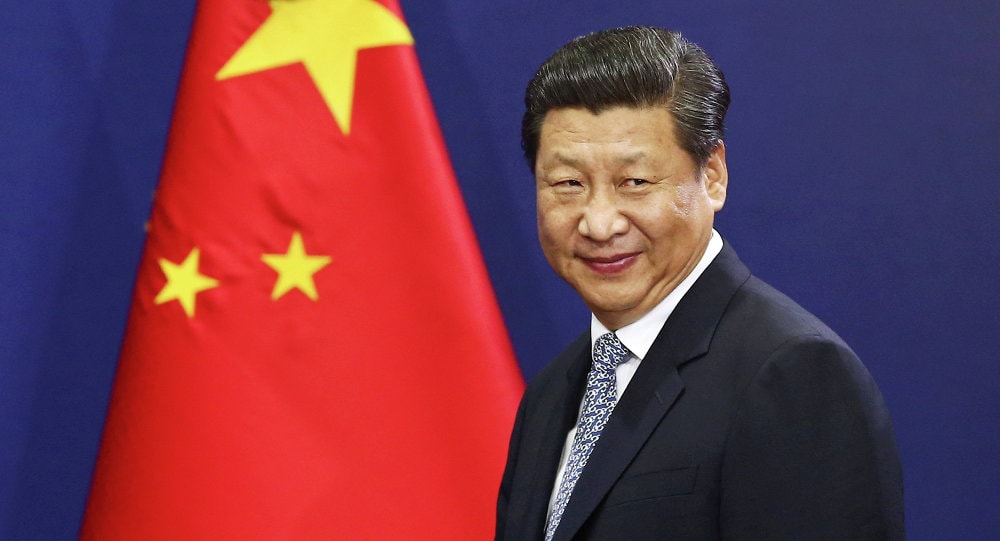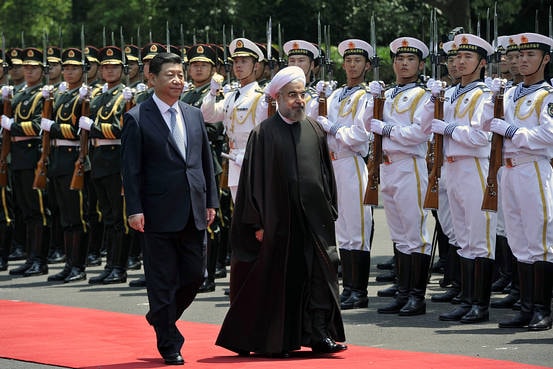Chinese President's visit to the Middle East: Seizing the opportunity, right timing?
(Baonghean) - Chinese President Xi Jinping made his first official visit since taking office to three Middle Eastern countries, including Iran, Saudi Arabia and Egypt, from January 19-23. Analysts said this is a sign that it is time for Beijing to play a more important role in this volatile region.
 |
| Chinese President Xi Jinping. Photo: Internet. |
Political moment
This is the first time in 12 years that a Chinese president has visited Iran and Egypt. The last time a Chinese leader visited Saudi Arabia was seven years ago. Xi’s visit to the Middle East comes amid heightened diplomatic tensions between Iran and Saudi Arabia following the execution of a Shiite cleric by Saudi Arabia. So why would China want to enter what it calls a “diplomatic minefield”?
Analysts say that, first of all, China wants to make a difference. China does not want to increase its influence in the region by directly "interfering" in the Syrian fire, but instead seeks out two rival countries, Iran and Saudi Arabia. Before Xi Jinping's visit, China sent Deputy Foreign Minister Zhang Ming to Saudi Arabia and Iran to find ways to contribute to reducing the tensions that have arisen between the two countries.
It seems that Beijing wants to be one step ahead in the Iran-Saudi Arabia tension when Russia has not arrived yet, and the US has also shown signs of wanting to stop or is too confused with the mess that outgoing President Barack Obama has not yet resolved in Syria and Iraq. Besides, through strengthening and enhancing cooperation with two opposing representatives in the Middle East, China also sends a message about a balanced foreign policy and Beijing can play a coordinating role with all parties.
On the other hand, although China does not go to Syria, by “becoming close” to Iran and Saudi Arabia, China will certainly benefit when the crisis in Syria comes to an end. Because Iran is an ally of the Syrian government, while Saudi Arabia supports the opposition. Thus, when the war ends, no matter which side wins, China will have many opportunities to enter Syria as an investor, seeking to control oil and other resources.
In addition, if China can mediate between Iran and Saudi Arabia, it will ease its Islamic worries. Sectarian conflicts in the Middle East between Sunni and Shiite sects may have the effect of "exporting" extremist ideology abroad, creating a haven for terrorist groups and negatively affecting China. More specifically, it is the prospect of increased attacks, violence, and terrorism by the Uyghur minority in the Xinjiang region. This helps explain why China is trying to seek a political role in the Middle East and now is the right time.
 |
| Chinese President Xi Jinping meets with Iranian President Hassan Rouhani in 2014 in Shanghai. (Photo: AP. |
Economic opportunity
Once China has asserted its political interests, it will have more opportunities and sustainable economic benefits. The Middle East is one of the three routes that Beijing has chosen for its “One Belt, One Road” program - a program that is expected to contribute greatly to the country’s economic development.
The Middle East is also where China imports more than half of its oil to meet its huge demand. Beijing needs to find a stable supply to ensure its growth at a time when the Middle East needs a new customer.
That is why, on this trip, the Chinese President brought along over 100 businesses, mainly state-owned energy companies. Investment opportunities in energy and other fields are even greater when Iran - one of the region's oil powers - has just had international sanctions lifted after the historic nuclear deal was signed last July.
American, Japanese and European companies are flocking to Tehran in search of new business opportunities. In such a context, Chinese companies certainly cannot be slow in finding a foothold in Iran. Not to mention, while many conservative Iranians are still firmly against importing American and Western products, it is clearly an opportunity for Chinese investors to gain a significant market share here.
While viewing Iran as a “power” in the region, a reliable pillar partner capable of breaking the hegemony of the West, Beijing has not forgotten to open channels of contact with Saudi Arabia. The current tension may not cause oil prices to rise, but in the long term, any conflict in the Middle East will have a negative impact on China’s energy security.
 |
| The Middle East is one of three routes that China has chosen for its “One Belt, One Road” program. Photo: Internet. |
Identifying the economic and political benefits of this “disastrous but also beneficial” region, right before Mr. Xi’s visit, on January 13, China for the first time announced “China’s Policy Document on Arab Countries”, which proposed a “1+2+3” cooperation mechanism, identifying energy cooperation as the main axis, infrastructure construction and trade investment facilitation as the two wings, and cooperation in the fields of nuclear, aerospace and new energy as the three breakthroughs.
Clearly, China is seizing the opportunity and timing to increase its influence in the Middle East. It’s just that Beijing’s moves will be different from those of the US and Russia. Although it is no longer an “outsider”, China will probably not directly intervene in the troubles in the Middle East.
Thanh Huyen
| RELATED NEWS |
|---|
